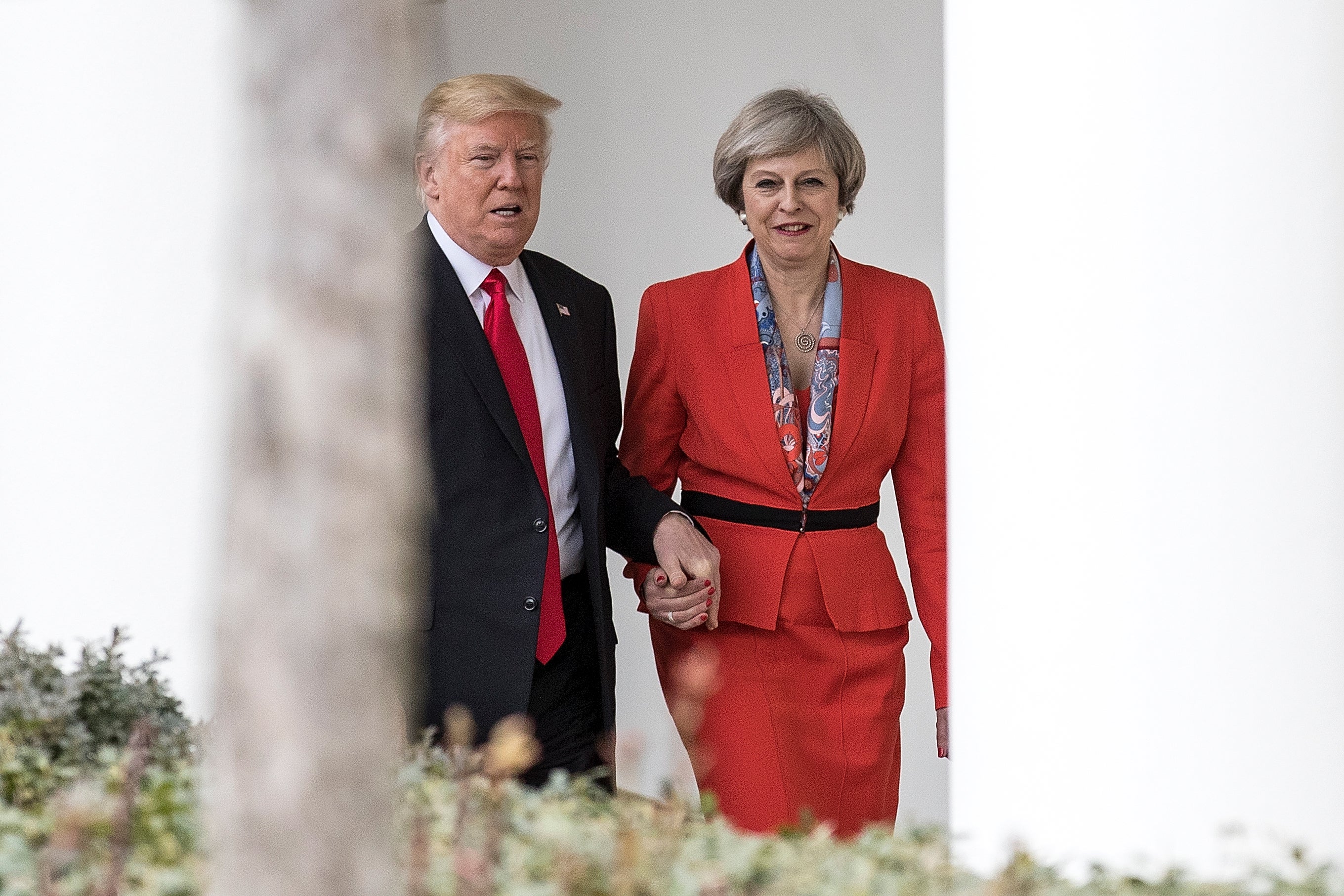Trump is coming… and this time we’d better be prepared
He has yet to secure the Republican Party nomination and is facing 91 felony charges, but Donald Trump is already well ahead of Joe Biden in the polls. The world must brace itself for the former president’s return to the Oval Office – but let’s not be quite so quick to roll out the red carpet for him, says Peter Westmacott, the UK’s former ambassador to the United States


With characteristic chutzpah, Donald Trump claimed on Sunday night that the fatal attack on US forces in Jordan by pro-Iranian militias – like the Hamas atrocities of 7 October, and even Vladimir Putin’s war of aggression against Ukraine – would never have happened if he had been president.
There is no evidence to suggest that any of this is true. But these attempts by Trump to grab the headlines add to the pressure on Joe Biden to stand up forcefully to aggressors; and the results of the Iowa caucuses and the New Hampshire primary last week show that a large number of Republican voters still want him to be their candidate and America’s next president.
That is not to say that Trump is any more likely to win the presidential election on Guy Fawkes Night in November. He did not do well with independents last Tuesday, and even some Republicans are uneasy about voting for a candidate who may by then have been convicted of some of the 91 crimes of which he has been accused – including that of inciting an insurrection three years ago which came closer to blowing up his country’s democracy than Guy Fawkes did 400 years earlier.
But the polls place Trump well ahead of Biden, who will, barring accidents, be the Democratic Party’s candidate – only once has a sitting president failed to secure his party’s nomination for a second term. A handful of fringe independents also in the race could further strengthen Trump’s hand by attracting votes which would otherwise go to Biden.
Much could change in the nine months between now and election day: the US economy is growing faster than expected, share prices are at record levels, and inflation is coming down, adding to Biden’s already strong (if under-appreciated) record on the economy. And the Democrats are having fun with (genuine) video clips showing Trump rambling incoherently, as a counter to Republican claims that Biden is not fit to serve a second term.
All that said, America’s largely unconditional support for Israel in its war in Gaza is doing Biden damage with young and Muslim voters, Ukraine fatigue is growing, and there is a real possibility of Trump returning to the White House in a year’s time (as well as every likelihood that he will again cry foul if he loses).
In a speech shortly before leaving office, President Obama noted that no one really changed when they became president. Rather, the office “magnifies who you already are”. During Trump’s time as president, for which he was understandably ill-prepared since even he didn’t believe he had a hope of winning until a few days beforehand, there were some mainstream, experienced Republicans who did their best to keep his instincts under control, and his actions within the guardrails of institutional propriety. But they weren’t able to prevent him becoming more of who he already was.
This time, Trump expects to win and will surround himself with Maga believers more loyal to their boss than to the republic. Expect them to be happy to help advance his declared aims of isolationism, protectionism, climate denial, a deal with Putin, punishment of political enemies, politicisation of the judiciary, the civil service and the military, and weakening of the international institutions which have helped keep much of the world safe and free for the last 75 years.
It follows that I don’t agree with Jacob Rees-Mogg and Boris Johnson that the return of Trump will be good for Britain. But we do need to prepare for the possibility. In the coming months, we need to counter Trumpian isolationist tendencies by doing far more with our European partners – and others further afield who are sitting on the fence – to show that it is not just Britain and (especially) America who are giving Ukraine the means to fight back again Putin’s aggression.
Democrats and Republicans have felt for years – I remember it well from my conversations with President Obama and his cabinet – that Europeans are not bearing their share of the burden of protecting Western democracies, and values, against potential enemies like Russia, and not doing enough to maintain proper levels of military preparedness. They aren’t wrong. Nato is a collective alliance, not a unilateral US guarantee to keep the rest of us safe.
That means giving a shot in the arm to our defence procurement, and building on the better relations Britain is developing with EU partners now that we no longer have prime ministers who think sovereignty means insulting counterparts across the channel. We aren’t going back to the single market or even customs union any time soon, but we can incrementally reduce friction in our trade and strengthen cooperation with our neighbours in ways which show America, and American voters, that Europeans are viable allies ready to do their bit. Even outside the EU, we can and should do much more together on defence, foreign policy, border security, student travel, counterterrorism, energy policy, and much else.
For a long time, stretching back to our decision not to join the forerunner of the European Union in the 1950s, and never to repeat the fiasco of Suez in 1956 when we sought to act without US support, the UK has been broadly content to follow the United States’ lead in foreign affairs. If there is to be a US president who doesn’t want to work with allies, and may not share our values and strategic objectives in, say, Ukraine, the Middle East and Asia, we need to adjust our thinking and our planning. Already, it is looking increasingly unlikely that Congress will vote through the new money which Biden has sought for Ukraine (and Israel).
Should Trump win, our prime minister – whoever it is by then – should reflect carefully before rushing across the Atlantic in the usual desperate bid to be the first foreigner to see the new man in the Oval Office. It did not go well for Theresa May, and Trump did her no favours when, encouraged by hardline Brexiteers, he gave her bad public advice on how to negotiate with Brussels.
There should be no thought of inviting Trump for a second state visit. We should maintain the close contacts that exist between our armed forces, parliamentarians, business and cultural leaders, but we should also, sadly, prepare our defences should a Trump administration carry through its threat to impose a 10 per cent tariff on all imports.
There remains much to play for in both the US and our own elections this year (if not in those being held in Russia). We can’t do much to influence campaigns outside our own country. But we can and must be prepared.
Sir Peter Westmacott is a former British ambassador to the United States
Join our commenting forum
Join thought-provoking conversations, follow other Independent readers and see their replies
Comments
Bookmark popover
Removed from bookmarks